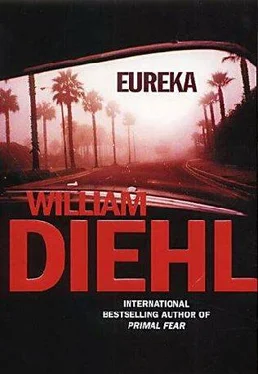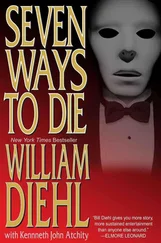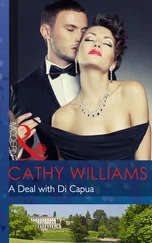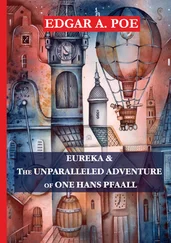William Diehl - Eureka
Здесь есть возможность читать онлайн «William Diehl - Eureka» весь текст электронной книги совершенно бесплатно (целиком полную версию без сокращений). В некоторых случаях можно слушать аудио, скачать через торрент в формате fb2 и присутствует краткое содержание. Жанр: Полицейский детектив, на английском языке. Описание произведения, (предисловие) а так же отзывы посетителей доступны на портале библиотеки ЛибКат.
- Название:Eureka
- Автор:
- Жанр:
- Год:неизвестен
- ISBN:нет данных
- Рейтинг книги:5 / 5. Голосов: 1
-
Избранное:Добавить в избранное
- Отзывы:
-
Ваша оценка:
- 100
- 1
- 2
- 3
- 4
- 5
Eureka: краткое содержание, описание и аннотация
Предлагаем к чтению аннотацию, описание, краткое содержание или предисловие (зависит от того, что написал сам автор книги «Eureka»). Если вы не нашли необходимую информацию о книге — напишите в комментариях, мы постараемся отыскать её.
Eureka — читать онлайн бесплатно полную книгу (весь текст) целиком
Ниже представлен текст книги, разбитый по страницам. Система сохранения места последней прочитанной страницы, позволяет с удобством читать онлайн бесплатно книгу «Eureka», без необходимости каждый раз заново искать на чём Вы остановились. Поставьте закладку, и сможете в любой момент перейти на страницу, на которой закончили чтение.
Интервал:
Закладка:
“All I do is make assignments, chew ass, or pat people on the back, whichever’s appropriate. It’s dog work. I miss the old days.”
“Waste of a good cop,” I said, my speech beginning to slur. “Th’ Ponder Man.”
Agassi was one of the best homicide cops I ever met. We made a good team. I’d pick clues out of the carpet and he’d ponder. That’s what he was best at, pondering. He would sit and stare into space and all the clues and evidence would swirl around in his head and come together like the pieces in a jigsaw puzzle. Then I’d step back in and tie up the loose ends. He once solved a murder case pondering and making phone calls while sitting in a hospital bed with a bullet in his side. There were still some loose ends to that one.
“Oh, I have a lot of time to ponder,” he said.
He reached down, picked up the attache case, put it carefully on the bed beside me so it wouldn’t rattle my leg, and snapped it open. It was full of file folders.
“Four years of pondering here,” he said. “I call it the Eureka File. The doc says you’re gonna have a lot of free time on your hands for the next couple of months. Maybe this’ll keep you from getting too bored. Call it a welcome home present.”
The morphine was taking me down and my eyes were drooping.
“You’re obsessive,” I mumbled.
“Completely,” he said with a smile. “Meantime, I’ll drop in every week or so. Least I can do since I’m next of kin.” He patted my hand but I was in never-never land before he got out the door.
A few days later when I was lucid enough to open the briefcase and start looking through all the information, I was astounded. There were copies of public records, news clippings, interviews, bits of historical facts to put all the information in perspective, as well as his own evaluations and observations. The material was arranged chronologically, starting at the turn of the century; an amazingly articulate archive of a case that had haunted me since I had left the force in the fall of 1941 to join the Army. I recalled some of the facts, but not in the contemplative and explicit detail with which Ski had arranged them.
During the next few months, as I explored and scrutinized the documents, sometimes with gossamer, narcotically induced hallucinations, sometimes with clearheaded and discernible perception, the Eureka affair took on a narrative life that I knew would draw me back to people who were engraved in my mind, and to a place I thought I had left behind forever.
It had all started at the turn of the century, at a time when eighteen million people still rode horses, there were only eight thousand automobiles on the horse paths called roads, and most lamps still used kerosene…
Book One
1900
The two young men who rode over the crest of the hill were a study in contrast. One was tall and lean, his black hair curling around his ears, his dark brown eyes bright and naive. The other was an inch or two shorter, with a tight, muscular body, light brown hair clipped short, and pale blue eyes that were wary and cautious.
Ben Gorman, the taller of the two, was Jewish. The other, Thomas Brodie Culhane, was Irish. Gorman, seventeen, was the son of Eli Gorman, the richest man in the San Miguel valley. Culhane, six months younger, was the orphaned son of a deep-sea fisherman and a washerwoman.
The two young men had been playing baseball on the other side of the rise, on a ball diamond laid out on the flat, comparatively dry side of the hill. It had been a ragtag pickup game with nine boys from Milltown, ten miles away. Brodie and Ben and three of the Milltowners made one team. Five against six. But with Ben, the mastermind with the magic arm, who could throw the ball like it was a lightning bolt, and Brodie, the slugger who hit the ball with the same energetic fury with which Gorman pitched, on the same team, it was so one-sided that the losing team quit after five innings and they all headed home.
As usual, water was running down from the hills, splashing in from the ocean, falling from the sky, gravitating to the haphazard collection of buildings that called itself a town. A valley town that lay at the bottom of a high, forested ridge that surrounded a broad bay in the Pacific Ocean and that attracted water the way honey attracts a bear.
The two horses, Ben’s a sleek, brown, thoroughbred stallion, Brodie’s a pure white stallion, shied away from the muddy road but even the hillside was soggy and the two boys had to keep them in tight rein so the horses wouldn’t slip and fall in the slime. Brodie hated mud. Had hated it for all his seventeen years-at least as far back as his memory went. And now daily spring rainstorms had turned the mud into syrup. Even in the dry season, when the mush turned to dust and stung your eyes and got in your mouth and in the wrinkles of your clothes, it was still mud to Brodie. It conjured memories of his mother struggling over a boiling cauldron of murky water, dropping railroad workers’ clothes into it and watching it turn the color of chocolate as she stirred the muddy duds.
It was a tough town they were riding into, a mile down the hill. The main street, deeply rutted and sloppy from the rains, led past a rough-and-tumble collection of bars and eateries; basic essentials like a grocery store, a hardware store, a pharmacy, and a bank; an icehouse that served the town’s only industry, a fishery; and several docks to house the fishing boats. Several homes, wooden shacks really, huddled behind the main drag, shelter for the people who worked in the town and the tough rail-layers. And behind them, hidden among the trees, was a long barracks that housed the Chinese workers, who kept to themselves, had their own stores, bars, and, it was rumored, an opium parlor, although nobody knew for sure since only Asians entered its grim confines.
It was one tough town, where table-stakes poker games were played behind storefront plate-glass windows in view of God and all his children; where fancy ladies advertised their cheap allure from windows above the hardware store; where, in the middle of Prohibition, bars advertised bar-brand drinks for twenty cents and imported brands for two bits. It was a town founded by hard-boiled railroad gandy dancers at the end of the track, where the sheriff, who had once ridden with Pat Garrett, kept the peace riding down the middle of the unpaved main street with a. 44-caliber Peacemaker on his hip and a strawberry roan under him.
The railroad gandy dancers, who finally had a wide-open town where they could raise hell when the grueling job of laying track was over for the day, had named it Eureka.
Eli Gorman, Ben’s father, often warned the two boys to stay out of the town, to ride the ridge of the mountain on their way to and from the ball diamond, but they were thirsty and decided to get a soda pop at the pharmacy, one of the few legitimate businesses in town. To Ben, who lived in the biggest mansion on the Hill, it was an exciting adventure, a quick trip to Sodom. But to Brodie, who had been brought up in a frame house on the edge of the harsh and violent village, it merely bolstered his hatred of the entire environment.
As they approached the main street, the horses became nervous and jumpy.
The moment reminded Brodie of the day he and Ben had first met. It was at this same intersection, four years ago. Brodie was walking back from the baseball field, had his glove tucked in his back pocket. As he crossed Main Street, he saw Ben Gorman riding up the road from the beach.
Two blocks up Main, in a saloon called Cooley’s Ale House, two drunks were arguing at the bar. Nobody paid much attention; drunken words and brawls were common among the hardworking railroad men. Then suddenly, one of them pulled a pistol from his back pocket and took a shot at the other. The bullet clipped an ear. The injured man backed through the swinging doors of the saloon, drew his own gun from an inside pocket, and fired a shot at his assailant, who was hit in the side. The man with the bleeding ear backed all the way out the swinging doors, shooting away as the other one charged toward him. Bolting through the door, the one who had started the gunfight was hit again and, as his knees gave out, he emptied his gun at the man with the pierced ear. They were only a few feet apart. The one with the bleeding ear was riddled with bullets. He threw his hands into the air and fell backward off the wooden sidewalk into the muddy street. The other crumpled like a paper sack on the wooden sidewalk. Both men were dead in seconds.
Читать дальшеИнтервал:
Закладка:
Похожие книги на «Eureka»
Представляем Вашему вниманию похожие книги на «Eureka» списком для выбора. Мы отобрали схожую по названию и смыслу литературу в надежде предоставить читателям больше вариантов отыскать новые, интересные, ещё непрочитанные произведения.
Обсуждение, отзывы о книге «Eureka» и просто собственные мнения читателей. Оставьте ваши комментарии, напишите, что Вы думаете о произведении, его смысле или главных героях. Укажите что конкретно понравилось, а что нет, и почему Вы так считаете.












